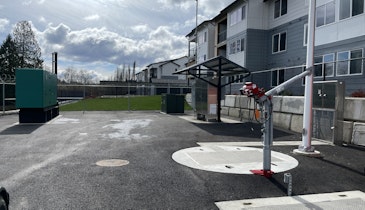A while ago, we sat down with a group of Minnesota installers. Among the questions we asked them was: What makes a good equipment operator?
Now, on this issue everyone is in a little different position. Some do it all themselves, while others have several employees who operate equipment. Still, there were a number of factors that everyone agreed upon.
The first thing mentioned was that acquiring skill takes time and practice, as in any other profession. Spending time in the cab is essential to operating equipment safely and efficiently. But a number of other qualities identify good operators. In the discussions it became clear that skillful use of the levers is not enough by itself.
Being observant
The operator must be observant, having an overall sense of what is happening around the equipment and the work area. Certainly following OSHA safety requirements for excavations is a part of being observant.
In the Competent Person require-ments, visual testing at the site is essential. Watching the excavation surfaces for changes and identifying changes in soil conditions that may result in unsafe conditions for other employees or visitors is critical. Identifying disturbed or fill soils by sight or by the feel of the equipment can be considered a gift.
But recognizing mixed color conditions that are different from natural soil profiles aids in identifying filled or disturbed soil that can be dangerous. This is less a gift than it is being observant to change. Sharing these observations with other employees and operators is important to work at future jobsites.
The good operator always keeps track of where other people are on the site. It helps when everyone on the site follows OSHA rules about wearing hardhats and high visibility vests or jackets. We have never seen a good operator swing the boom while doing something else — like talking on the phone. Focusing on the job is critical.
Being aware
A good operator is aware of other things to look for on the site. One simple item is underground utilities. Obviously, we need to make the one call and have them located before starting to excavate.
However, the good operator is aware of situations where there may be private utilities that would not have been part of the locator process. Examples are the electric lines for pumps in the decorative pond or for the shed out back. When wires are dangling off the front of the backhoe bucket is not the time to start asking questions of the owner.
Other concerns include erosion control and protecting the landscaping. Coming too close to the retaining wall can be an expensive lesson when you have to replace the wall because it collapsed. Damaging trees with the backhoe, intentionally or not, can create problems and lose a good customer.
We were on a site once where each child had a tree planted for them at birth. A good operator knows about things like that before starting to dig or operating equipment in the area. It is a part of being aware.
Operating the machine
Skill in operating the machine is an important quality that identifies the cream of the crop. Speed can be a part of this quality from the perspective of operating smoothly and efficiently. Having a good eye and a good touch to control the backhoe bucket for leveling and excavating is important.
It is critical to understand the ability of the machine and to have a feel for the controls in terms of bucket movement. Having an eye for details is also important. The eye does not replace the need for a level, but developing the skill to keep things level will really move the job forward.
Operators should know the equipment and its limitations in terms of lifting, reach and clearance requirements. The best control pattern is what you feel comfortable with and is usually something you learn early in your career. Over-loading and damaging equipment through misuse slows the job and can be hazardous, so the good operator does not go beyond the equipment capacity.
Managing the site
The final quality of a good operator is the ability to manage the site. Tracking the flow of work at the site is critical for the system to be installed correctly and efficiently. Delivery of materials and the timing of activities takes practice and time for the operator to master. Working with others onsite and talking through the flow of work to be done helps all workers do their jobs better.
It is always fun to walk onto a site with a real pro and have him identify the unique site characteristics and problems and how they were solved. One prime example of this is thinking ahead about how the tank gets delivered to the site.
The difference between an easy job and one that is difficult often is wrapped up in this delivery route. Having room to operate is important. If it is necessary to build a road in, it is easier to have this done ahead of time than while the driver is waiting and calling back to the shop to explain why he is not out on the next delivery.
A good operator is a fantastic resource for any company. So whether that operator is you or one of your employees, take a step back and realize that it takes time and practice to become proficient. For those just beginning to learn the skills, take time to watch those who are proficient. Talk with them and learn from them.





